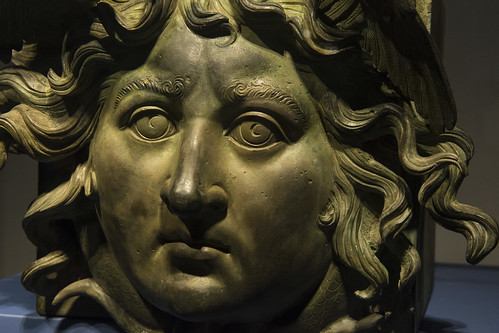
apotropaic /ap-ə-trə-PAY-ik/ /apətrəˈpeɪɪk/. adjective. Something that prevents—or is intended to prevent—evil influence or bad luck. From Greek apotropaios (averting evil), from apo (away) + trepein(turning).
“This close, the biodome looms over everything, and everybody in Rosewater glances at it every hour, as if it has apotropaic powers.” (Tade Thompson)
“…an Agnus Dei (a small wax cake impressed with the figure of a lamb bearing a cross, blessed by the Pope and thought to possess apotropaic power—a more modest version of the flying phallus pilgrimage badge).” (Melissa Mohr)
“T suddenly understand the gesundheit-impulse, the salt over the shoulder and apotropaic barn-signs.” (David Foster Wallace)
“Literary tragedy is in this formal sense a scapegoat, substitute, or safety valve. Its cultural value is not only aesthetic but also ameliorative and apotropaic, warding off danger.” (Marjorie Garber)
“The consultant’s name was Mr. Todd. This can only be considered a joke in bad taste on the part of polyglot fate. It could have been worse. There is a name De’Ath, with that fancy medial capital and apotropaic apostrophe which fool no one.” (John Banville)
“A boring subtext, about the wisdom or otherwise of actually uttering Voldemort’s name, meanwhile robs the apotropaic device of its force.” (Christopher Hitchens)



